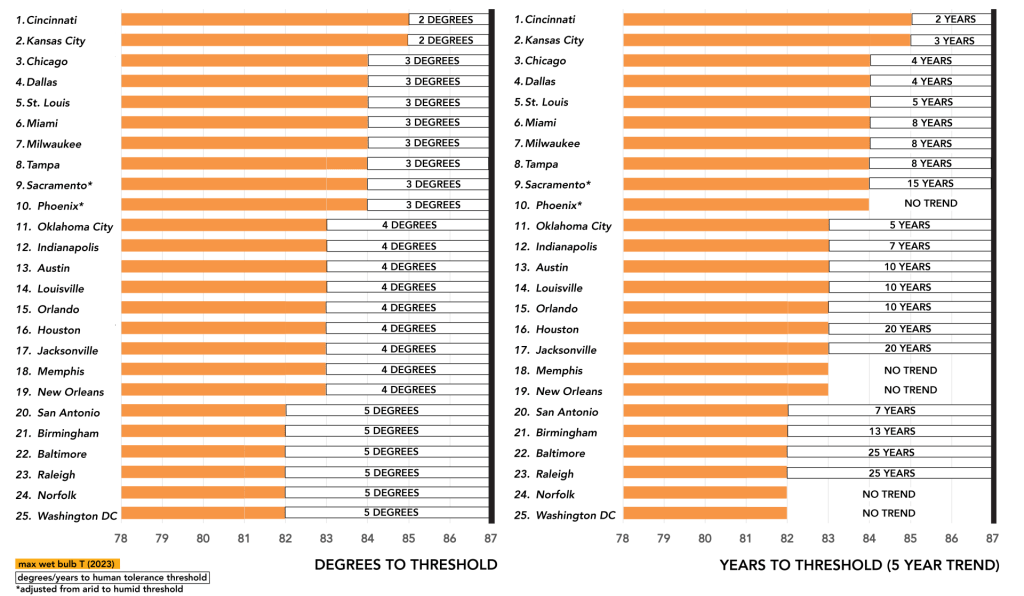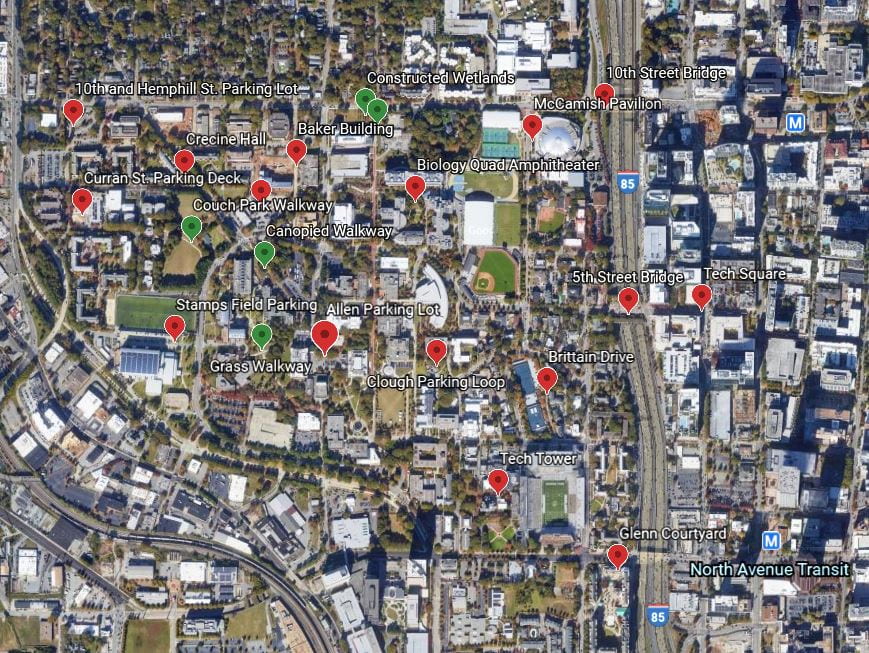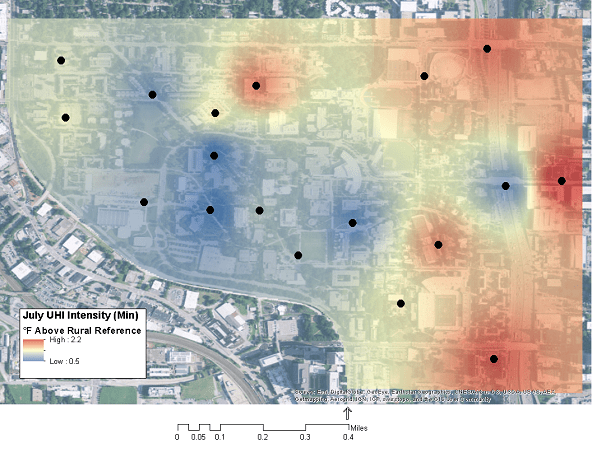Human Heat Tolerance Index
The UCL Heat Tolerance Index (HTI) tracks the incidence of combined levels of outdoor temperature and humidity at which an individual will experience a rise in core body temperatures from exposures of 1-2 hours. Recent physiological studies have found the threshold temperature for adverse health impacts – measured as the wet bulb temperature (a combination of heat and humidity) – to be lower than previously established. For a healthy young adult, a wet bulb temperature of 87°F, equivalent to 87°F with 100% relative humidity (or 100°F with 60% relative humidity), is found to induce a fever within 60-90 minutes of exposure at a moderate activity level (see Vecellio et al. 2022). With sustained exposures (> 3 hours), core body temperatures may exceed 104°F, elevating the risk of heat stroke (see Cottle et al. 2022). We refer to any days with a temperature in excess of this 87°F limit as threshold heat events. The HTI quantifies the difference in maximum annual wet bulb temperatures and the 87°F threshold at which outdoor activities cannot be safely continued. A second index estimates the remaining time to threshold exceedance based on a continuation the five-year average rate of increase in the annual maximum wet bulb temperature.

*Data compiled by W. Stone
Our analysis finds that no major US city has experienced a wet bulb temperature of 87°F over the 18 years (2005-2023) of data collected by the National Oceanic and Atmospheric Administration (NOAA). Based on the most recent year of observations (2023), 25 large US cities experienced one or more summer days in which the maximum wet bulb temperature fell within five degrees of the human heat tolerance threshold. If recent warming trends continue, as many as six US cities could exceed the heat tolerance threshold in the next five years. Should this threshold be exceeded, outdoor activities such as landscaping, construction, municipal services (e.g., garbage collection), and athletic events would pose an acute health risk and should be discontinued. The Urban Climate Lab is partnering with cities in the development of urban heat management plans and climate monitoring networks to measure heat and humidity risk in real time.
GT Climate Network
Today, extreme temperatures constitute the greatest weather-related health risk to the urban populations of US cities – a risk that is steadily rising over time. Despite this risk, most cities measure temperatures at only a handful of locations, most often relying on a nearby airport to represent heat exposures across the entire city. The Urban Climate Lab has constructed dense climate monitoring networks in Atlanta and New Orleans to better understand how heat risk varies within cities and to support heat risk surveillance at the neighborhood level. Daily temperature data for a large network of sensors across the Georgia Tech campus and midtown Atlanta can be downloaded from our Data + Resources page.

